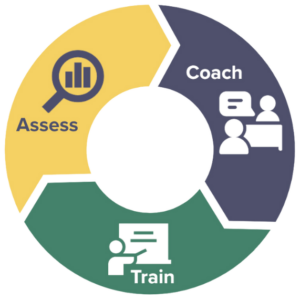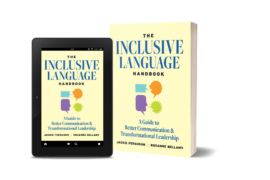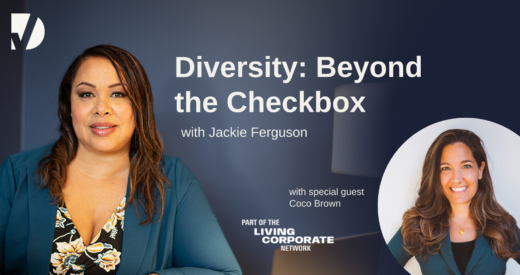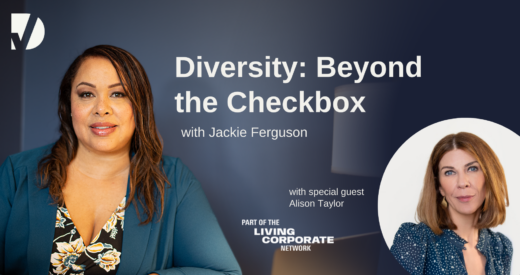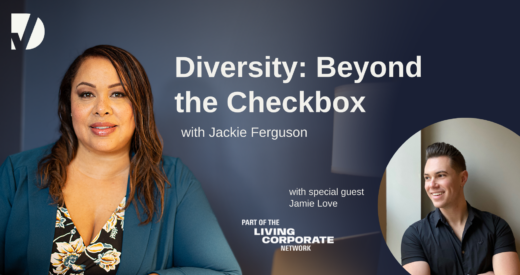If companies want to succeed on the world stage, managers and leaders with a global perspective are essential. And what better way to get that perspective than to cultivate bosses who come from foreign, intersectional, or multicultural backgrounds?

As a volunteer with 100 Roses from Concrete, a nonprofit networking organization for people of color in communications, I recently collaborated with a group of new graduates on their personal and professional growth. During a virtual meeting, a young woman who wears a hijab and identifies as a North African Arab, told me what would really help her in her career.
“I wish we could have more multicultural icons such as yourself, who truly understand our versatile and different lived experiences in this industry,” she said. “We really need managers we can look up to, who can relate to us and what we go through in life.”
She told me this because I grew up in Lebanon, started my advertising career in the Middle East and North Africa, and pursued my master’s degree in New York City. I have leveraged my global experience at every company I have worked for, including my current role as Director of Experience at a Black-owned agency producing multicultural campaigns.
In a business environment where diversity, equity, and inclusion (DEI) efforts are increasingly important, where more individuals from underrepresented groups are being hired, and where understanding diversity is essential, a boss with an intersectional foreign background is ideal. Leaders like this can understand and relate to a multitude of different lived experiences and can more easily manage a team of diverse individuals.
There are many positive influences of having this particular type of manager, but in this article we will explore three main advantages: cultural understanding, mentorship and empowerment, and seeing problems and solutions from a local and global perspective.
Multicultural managers help companies reach a global audience
A study published by Harvard Business Review highlighted several CEOs of American companies who are immigrants, such as Elon Musk (Tesla), Sergey Brin (Google), Satya Nadella (Microsoft), and Dara Khosrowshahi (Expedia and Uber), yet the percentage of immigrant executives in corporate spaces is low. The authors conclude that to get the best leaders, the U.S. needs to “embrace immigration, and acknowledge the significant contribution that immigrant executives already play.”
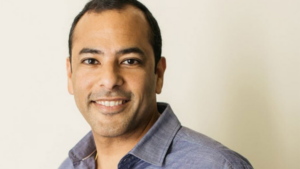
Amit Mathradas, President and COO of Avalara, explains that there are many ways of doing business in different regions of the world when you are a manager with a foreign background in a U.S.-based global company. In a Fast Company article, he narrates his experience working both in India and the U.S. and how having a different approach enables him to widen the horizon and help his team explore global business relationships.
“There’s an opportunity for leaders who embrace international rotations and are eager to learn about the cultural nuances around the world,” he writes. “Leaders with a range of global experiences will likely stand out as we move forward.”
This multicultural mindset is especially on display in global business hubs like Dubai, United Arab Emirates. In my experience, major companies there adopt few overt DEI practices within their teams simply because the city attracts professionals of multiple backgrounds from around the world. You will see CEOs, managers, and executives from different countries (whether from Africa, Europe or Asia), and they empower and resonate with their subordinates regardless of cultural backgrounds, because they understand that cross-cultural communication and strategies are essential in these spaces.

Defining a “boss of the world”
This is a term that I use for managers who come from a foreign and intersectional background and resonate with two or more distinct or interrelated lived cultural experiences in a U.S. context. Let’s consider three hypothetical personas and scenarios. You may identify with one of these individuals, or you might have encountered people like them, though I encourage you to acknowledge their versatile lived experiences and cultural backgrounds. Wouldn’t you think professionals with their profiles could have a fresh and effective leadership approach?
1) Cultural understanding and openness to learn
Chantale, who recently earned her doctorate, was born in Sweden to a Greek father and Swedish mother. She speaks three languages, has studied in Spain, and recently moved to Atlanta to become director of human resources at a technology company. Along with recruiting and hiring, her role demands that she consider the company’s DEI goals when it comes to hiring talent from diverse backgrounds and empowering underrepresented individuals for leadership roles.
Chantale takes a conversational approach in her interviews and inquires about each candidate’s lived experience, given her past experiences with foreign cultures. The candidates being interviewed feel seen, appreciated, and empowered knowing that a manager in a leadership position is curious about their cultural background. Chantale eventually hits her success metrics by having a diverse pool of candidates from around the world.
2) Mentorship and empowerment
Rasheeda is a trilingual Algerian-born healthcare professional who identifies as Arab, Black, and North African. She has professional experience working in hospitals in Abu Dhabi, France, and currently Washington, D.C., where she is a director of communications at one of the city’s biggest hospitals.
She is vocal about her intersectional background, and her employees feel comfortable with her because they share common experiences. With her Black American employees, Rasheeda discusses her experience as a Black woman living abroad, and she encourages them to approach certain projects from different angles and tracks their process to ensure their success. She speaks French with her French-speaking juniors and encourages them to use their native language even in a predominantly English-speaking environment. Rasheeda also plans exchange programs for her team to travel to hospitals in other countries, so they can gain global experience as part of their professional development.
3) Approaching problems and solutions from a local and global perspective
Leonardo is a bilingual marketing specialist who belongs to the LGBTQ+ community. He previously worked in a global agency in South Africa, which targets markets in Europe, West Africa, and the Middle East, and he just got hired as a senior creative strategist in a corporate ad agency in New York City.
His first campaign brief is for a sportswear brand targeting LGBTQ+ audiences for Pride month, and while having a session with his junior strategist, Leonardo realizes that the research being presented doesn’t reflect his own experience. He stops to explain how he perceives this audience, given his global experience and cultural upbringing, and the junior strategist is surprised by the insight. Leonardo’s global perspective on a local topic turns the narrative of the campaign around, to be more effective in targeting its audience. New research is added to the existing data, eventually leading to a more inclusive strategy for the marketing campaign.

Space to be a multicultural leader
To sum up, a “boss of the world” can push the boundaries of employee professional development and overall business strategies and advancement — as long as they are given the chance and the space to be fully themselves and bring their intersectional experience into the workplace.
We encourage you to take the time to appreciate your employees who come from global backgrounds and to give them the opportunity to leverage their diverse experiences to be inclusive leaders and great “bosses of the world.”
Jad-Évangelo Nasser is a multilingual Media & Communications professional and educator with global experience in creative agencies in the Middle East, North African and North American regions with extensive skill sets in film production, creative marketing strategies, DEI, and learning and development.



